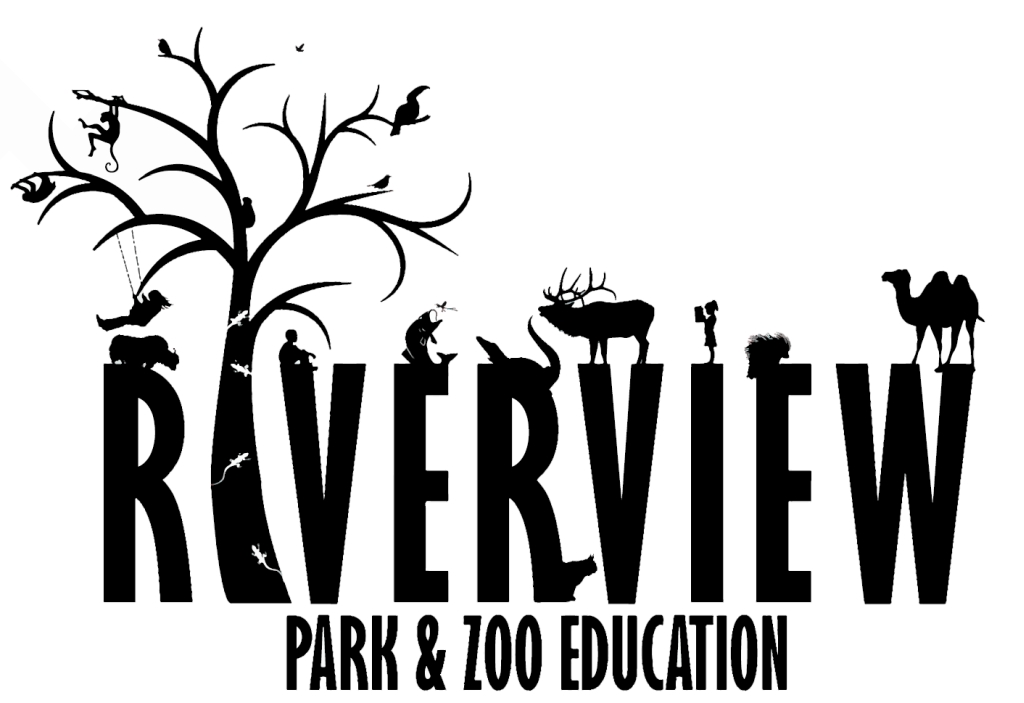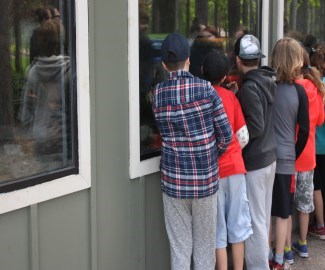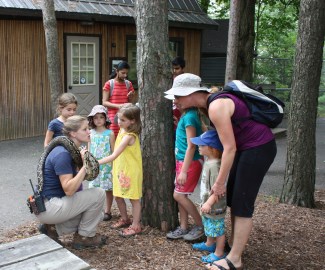Education Programs

The Park and Zoo is an educational facility that encourages exploration and connection to nature in an outdoor environment. We welcome thousands of students and see over a quarter million visitors each year.
Come connect and learn about the animals and plants that live here and how to protect them.
Zoo Trek |
|
ZOO TREK: Refers to a 2-hour program at a pre-set time arranged with RPZ staff between 10:00 a.m. and 2:00 p.m. Students participate in a short in-class activity, with a chance animal encounter, as well as a guided tour through the zoo grounds. Cost is $7.50 per student, up to a maximum of 50 students. Minimum charge $150. The perfect way to compliment a class trip to the zoo! To register for a Zoo Trek, please submit a booking request form for RPZ staff to review and follow-up with further details.
|
Zoo Tour |
ZOO TOUR: Refers to a 1-hour guided tour pre-arranged with RPZ staff. A knowledgeable tour guide will lead your group on an interpretive walk through the zoo, providing some interesting personal background information on our animal species, their habitats, and conservation status. Cost is $5.00 per person, up to a maximum of 50 people. Minimum charge $100. To register for a Zoo Tour, please submit a booking request form for RPZ staff to review and follow-up with further details. |
Zoo Crew |

This parent-tot program is a fun way for you and your pre-school child/grandchild to connect with nature. For ages 2 to 5, each session includes songs, games, and a zoo tour or animal encounter that will get you and your tot excited for nature! During the summer, we offer six consecutive weekly sessions on both Monday and Tuesday mornings from July to August. In winter, we offer monthly sessions typically on the first or second Saturday of the month from November to April. Our Summer Zoo Crew program is now full! Thanks to everyone for your interest. Successful registrants will be notified by email. Missed out? Watch for our fall/winter registration to be posted in October. |
Zoo Camp Day |
|
Available to children ages 6 to 10, cost is $50 per camper, and runs from 9:00 a.m. to 3:30 p.m. The day includes crafts and games, as well as a tour of the zoo grounds and an animal encounter or two. Friday, August 8, 2025 (Rain date: Wednesday, August 13) NOTE: 2025 registration now full! |
The Bondar Challenge |
|
This two-day summer camp connects students to nature through the art of photography, learning how to take great photos using different camera techniques, and appreciating nature at the zoo and on local riverfront trails. 2025 Dates: July 17-18 and August 14-15 Camp fee is $80 per person and includes entry into the National Bondar Challenge Nature Photography Competition. Recommended for ages 9-15. Registration forms now available. |
Regular events |
|
Otter Enrichment Sessions take place every day at 1:30 p.m. year-round at our world-class otter exhibit. Stop by to learn more about these amazing animals and watch the fun as they receive their afternoon enrichment. Meet the Keeper is available weekdays at 2:30 p.m. from June until September at the zoo. One of our educators will be on hand with a different animal species each day to answer your questions and teach you more about our zoo animals.
|
Placements and co-ops |
|
There are a limited number of placement opportunities available each year, so be sure to apply early. If you are interested in doing a placement with us, please fill out the Placement Request Form. |




